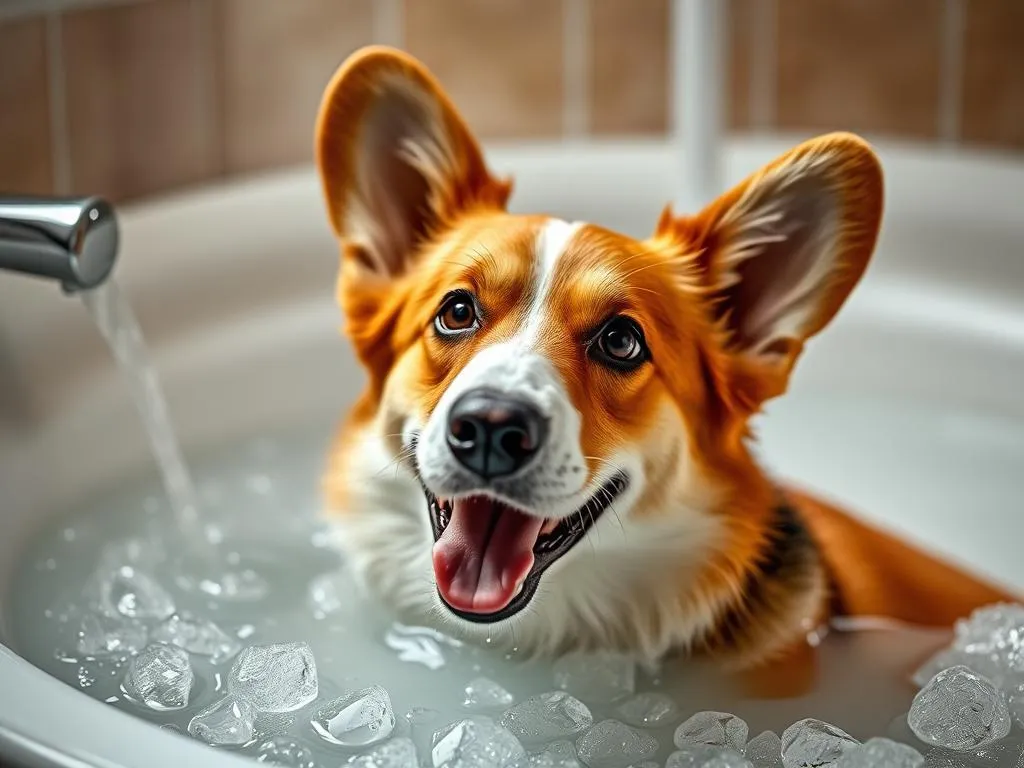
Caring for your dog’s health goes beyond just feeding and exercising; grooming plays a crucial role in maintaining their overall well-being. This is particularly true for Corgis, a breed known for its unique characteristics and adorable appearance. Among the many questions pet owners have, one stands out: how often should I bathe my Corgi? Understanding the right bathing frequency is vital for their skin health and overall happiness.
Understanding Corgi Characteristics
Corgi Breeds Overview
Corgis come in two main breeds: the Pembroke Welsh Corgi and the Cardigan Welsh Corgi. While both breeds share similar physical traits, they have distinct characteristics. The Pembroke is recognized for its short tail and slightly lighter build, while the Cardigan has a longer tail and a sturdier frame. These differences can influence grooming needs, particularly when it comes to their coats.
Coat Type and Maintenance
Both Corgi breeds sport a double coat, consisting of a soft undercoat and a longer, coarser outer coat. This unique coat structure helps keep them warm and dry but also means they shed quite a bit, especially during seasonal changes. Understanding their shedding patterns is essential for effective grooming and maintaining cleanliness.
Factors Influencing Bathing Frequency
Activity Level
One of the primary factors influencing how often you should bathe your Corgi is their activity level. If your Corgi loves to romp around the park, splash in puddles, or dig in the garden, they may require more frequent baths compared to a more sedentary dog. Regular exercise can lead to dirt accumulation, warranting a bath to keep them clean and comfortable.
Skin Health and Allergies
Corgis are prone to certain skin conditions, including allergies. If your Corgi has a sensitive skin condition, you may need to adjust the frequency of baths. Bathing too frequently can irritate the skin, while infrequent bathing might exacerbate existing conditions. Monitoring your dog’s skin health is crucial in determining the right bathing routine.
Environmental Considerations
The environment where you live can greatly affect how often you should bathe your Corgi. For example, if your dog is often exposed to muddy areas or enjoys swimming in lakes, you may find yourself bathing them more often. Conversely, if you live in a drier climate, your Corgi may require fewer baths due to less dirt exposure.
Age and Health Status
Bathing needs can also vary based on age and health status. Puppies may require baths less frequently as they often stay cleaner, while senior Corgis may need more attention if they have mobility issues that prevent them from grooming themselves. Additionally, if your Corgi is sick or recovering from an illness, consult your veterinarian for specific bathing recommendations.
General Guidelines for Bathing Corgis
Recommended Bathing Frequency
Generally, it is recommended to bathe your Corgi every 4 to 6 weeks. However, individual circumstances can lead to adjustments in this frequency. For instance, if your Corgi enjoys outdoor activities and gets dirty frequently, you may need to bathe them more often. Conversely, if they remain relatively clean, you can extend the time between baths.
Signs Your Corgi Needs a Bath
Knowing when your Corgi needs a bath can save you time and effort. Look for these signs:
- Visual Cues: Dirt, mud, or a matted coat can indicate it’s time for a bath.
- Olfactory Cues: A noticeable odor is a clear sign your Corgi is due for a cleaning.
- Behavioral Signs: If your Corgi is scratching more than usual or rolling around on the carpet, they may feel uncomfortable due to dirt or skin irritation.
Best Practices for Bathing Your Corgi
Preparing for Bath Time
Before you start bathing your Corgi, gather all necessary supplies. This includes:
- Dog-safe shampoo: Choose a gentle, hypoallergenic option.
- Towels: Have several on hand for drying.
- Brushes: A good brush can help remove tangles and loose fur.
Set up a comfortable bathing area, whether it’s in your bathtub, a sink, or outside with a hose.
Bathing Techniques
When it’s time to bathe your Corgi, follow these steps for an effective and enjoyable experience:
- Wet the Coat: Use lukewarm water to wet your Corgi’s coat thoroughly, avoiding the head initially.
- Apply Shampoo: Work a small amount of dog shampoo into their coat, starting from the neck and moving down to the tail.
- Rinse Thoroughly: Ensure all shampoo is rinsed out to avoid skin irritation.
- Drying: Use towels to gently dry your Corgi. If your dog is comfortable, you can use a pet-safe blow dryer on a low setting.
Post-Bath Care
Once your Corgi is clean, don’t forget about post-bath grooming. Brushing after a bath helps remove loose hairs and prevents matting. Additionally, check their ears and paws for any dirt or debris that may have accumulated.
Choosing the Right Products
Dog-Safe Shampoo Options
When selecting a shampoo for your Corgi, look for hypoallergenic and natural options. Here are some tips for choosing the right products:
- Avoid harsh chemicals: Ingredients like sulfates and parabens can irritate your dog’s skin.
- Natural ingredients: Opt for shampoos with oatmeal or aloe vera, which can help soothe the skin.
Additional Grooming Products
In addition to shampoo, consider investing in other grooming tools, such as:
- Conditioners: These can help maintain coat softness and manageability.
- Brushes: A slicker brush or a de-shedding tool can help manage their thick coat efficiently.
Alternatives to Bathing
Waterless Bathing Solutions
If your Corgi needs a quick freshening up without a full bath, consider waterless bathing solutions like dry shampoos or wipes. These products can help remove dirt and odors without the hassle of a complete bath.
Regular Grooming and Brushing
Regular grooming is essential for maintaining your Corgi’s coat health. Brushing at least once a week helps minimize shedding and keeps their coat shiny. It’s also a great opportunity to bond with your dog.
Professional Grooming Services
If you find bathing your Corgi challenging, consider seeking professional grooming services. Groomers can provide thorough baths, along with nail trims and ear cleaning. This is especially useful for busy owners or those with mobility issues.
Common Bathing Mistakes to Avoid
Overbathing
One of the most common mistakes owners make is overbathing their dogs. Frequent baths can strip natural oils, leading to dry and irritated skin. Stick to the recommended bathing frequency and adjust based on your Corgi’s needs.
Using Human Products
It’s tempting to use human shampoos, but this can be harmful to your dog’s skin. Human products are formulated for different pH levels and can cause irritation. Always use dog-specific grooming products.
Neglecting Post-Bath Care
After a bath, many pet owners forget about drying and grooming. Proper drying is essential to prevent chills, and brushing can help keep the coat looking its best. Neglecting these steps can lead to matting and skin issues.
Conclusion
Maintaining your Corgi’s health involves understanding their unique grooming needs. Knowing how often to bathe your Corgi is crucial for their skin health and overall happiness. Regular grooming, tailored bathing routines, and selecting the right products can create a positive experience for both you and your furry friend. Always remember to monitor your Corgi’s individual needs, as they can vary from dog to dog. Regular health check-ups and grooming can go a long way in ensuring your Corgi remains happy and healthy.
FAQs
How often should I bathe my Corgi in the winter vs. summer?
In winter, Corgis may require fewer baths due to reduced outdoor activity. In contrast, summer might necessitate more frequent baths, especially if your Corgi enjoys playing outside.
Can I bathe my Corgi too often?
Yes, overbathing can strip natural oils from their skin, leading to dryness and irritation. Stick to a routine of every 4-6 weeks and adjust as necessary.
What should I do if my Corgi hates baths?
Start by making bath time a positive experience. Use treats and praise to create a calm environment. Gradually introduce water and make the process as stress-free as possible.
Are there specific shampoos recommended for Corgis with allergies?
Yes, look for hypoallergenic shampoos with natural ingredients. Consult your vet for recommendations tailored to your Corgi’s specific allergy needs.
How can I make bath time enjoyable for my Corgi?
Incorporate positive reinforcement, such as treats and praise, during and after the bath. A gentle approach with plenty of love can help your Corgi feel more comfortable during bath time.









